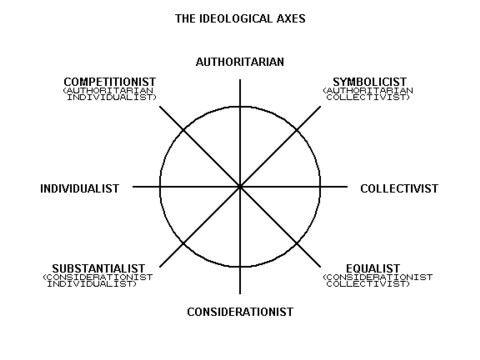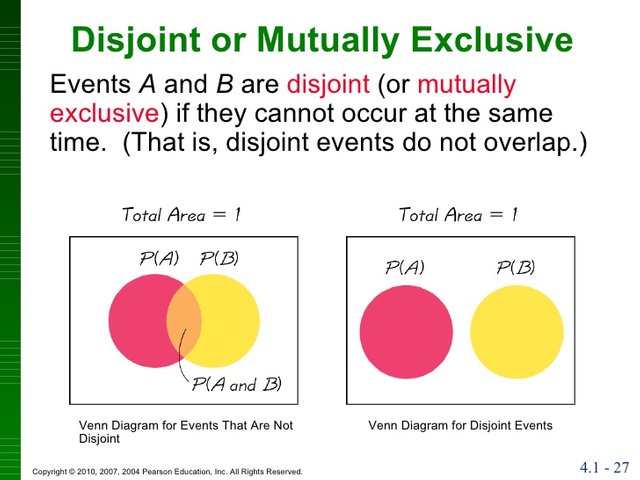Ideological security vs financial security, which comes first?
Ideological security vs financial security, which comes first?
An interesting question I've been asking myself while observing the Ethereum community and the DAO is to look at the true question behind the fork vs no fork debate. We have one side which seems to prioritize ideological security and another side which seems to prioritize financial security. On some level both may intersect because libertarians usually believe in property rights but at the same time there are new principles which have just "come online".
As a rational person, I would want to of course have both. The question is how can it be pragmatic to have both at the same time? In addition, it's also very difficult to maintain ideological purity and unity without resorting to force. Censorship for example takes place on certain communications platforms in order to enforce the ideological standard and anyone who posts against that standard may see their post removed. The challenge, how can we avoid the almost certain ideological conflicts which arise as a community gains in size? Can we really expect or anticipate that the billions of people will maintain and believe in one specific ideology for blockchain technology?
What is ideological security?
The National Post wrote:
“For the CPC party ideological security is of the utmost concern,”
says Sarah McKune, one of the authors of the report and the senior legal adviser for Citizen Lab. “They are willing to take steps to secure its ideology from attacks even when those steps may undermine its economic interest or even diplomatic relations.”
Ideological security is already exemplified in the context of nation states. The Great Firewall of China for example may be a tool to maintain ideological security within China. The United States also once had laws set up to achieve similar ends during the Cold War when certain prominent writers were blackballed for spreading subversive ideology.
One of the first expressions ideological security often takes is in the form of censorship. In an example we have this quote:
"There were a few anarcha-feminists around, which worked all right for a while. But then they found a dangerously misogynistic troll who made them uncomfortable, and they got them banned. I think the story was that they were an outsider and troll sent over by the Mens Rights people to spread hate and misogyny or something. Nobody was willing to go out of their way to argue against banning such a person. But then they found a few more. The precedent had been set, and only a few people spoke up against the further banning, and those who did thereby outed themselves as misogyny apologists as well.
Then, partially because there were so many "trolls" to ban, and partially because of the weak controls on who got to be moderator, some anarcha-feminists got moderator positions, and started banning and deleting the comments of the "trolls" who were making /r/anarchism an "unsafe and unwelcoming" space for women."
It is important to note that not all instances of ideological security enforcement will take the form of online censorship. It is just to note that in most online cases the first indication that there is enforcement of ideology is through censorship because censorship is a very easy tactical measure to use to block out subversive or undesirable ideas. The examples above can apply to any Reddit forum which allows for moderators to ban and if moderators ban without following specific rules for when they can ban or cannot ban then this becomes possible. The following quote summarizes ideological security:
Instead of laughing at anarchists for the irony of creating a totalitarian system for themselves, we should be alarmed and take note; a community of people absolutely opposed to oppression and authority and violations of individual rights wound up oppressing each other with arbitrary authority leading to the destruction of the usefulness of their community.
What is the function of ideological security?
Ideology maintains group cohesion with multiple participants. Ideologically motivated groups may not care about anything other than adherence to their principles and furtherance of their cause. The purpose of ideological security is to protect the group from straying from it's activist roots, from it's manifesto, and from it's causes. Ideological security often requires some sort of enforcement, usually community enforcement of the ideology. In some countries law enforcement is used to maintain ideological security for instance and this is an important distinction between ideological security and financial security. Overall the function of ideological security could be defined as a means of resisting ideological hijackings.
What is financial security?
Financial security is primarily a means to an end. Through financial security you can gain personal liberty. Libertarians tend to understand this point and understand the notion of property rights. Financial security can lead to financial independence which can then lead to financial freedom.
What is the function of financial security?
Financial security is about maintaining financial freedom. This financial freedom may take the form of being financially independent or it may take the form of avoiding debts but in general it is a goal many people set for themselves. The goal to be self sufficient, the goal to protect life, liberty and property, all involve markets. Financial security can translate directly or indirectly into physical security, survival, or liberty in the form of greater choices in the market.
Financial security isn't going to require much external enforcement but it does require regulations most of the time. For example a person who buys something will want to know they will get what they pay for. No false advertising, no defective products, no low quality business practices or scams. In an environment of information asymmetry it is very easy to take advantage of ignorance and in order to protect financial security for the ordinary participant in the market there is an expectation of some reasonable level of transparency so that every participant can make a decision.
The primary function of financial security for the individual is to support the survival of the individual and or the survival of their loved ones. A purpose of financial security for a community is that the more people in a community who are financially secure, financially independent, financially free, the greater the opportunities there are to raise funds, to start businesses, to create jobs, to generate new industries. The money for R&D often comes directly from financially independent supporters of ideas.
A look at the sinking titanic we once called The DAO
When we look at The DAO sinking like the titanic we can see that the dreams of financial independence for many are being dashed the farther away the Ethereum community moves from a hard fork. It is now becoming recognized that a hard fork may be the only way to guarantee that individuals who were brave enough to take the risk with The DAO are not punished for it.
Yet some in the community have expressed the opinion that the punishment is deserved. There is an idea that a lesson has to be learned and that only through a painful lesson can future investors learn not to make a similar mistake. Of course this could deter investors from taking risks on ideas such as The DAO which seemingly from the very beginning was a high risk moderate to low profit idea. It was never going to make a quick profit, was a long term bet on the future of Ethereum, also on the Internet of Things, also on smart contracts, also on the Ethereum Computer.
Could it be that these sorts of investors deserve to take the punishment and move on? If there is no fork then that is exactly what will happen. The investors who took the most risk in the ecosystem will be the ones who get punished the most. For some these punishments may be long lasting, while for others it might be less long lasting. What is clear is that it will have a lasting effect on the future behavior of the market for DAOs, smart contracts, and on the appetite for risk in the crypto ecosystem.
There is of course a case made by anti forkers who say code is cruel, the investors deserve to be punished and should take responsibility for a bad choice, primarily because the ideological security of the blockchain community is at stake and in the end the ideological security cannot be sacrificed. Ideological security is something real which has value but if the community chooses ideological security as the main priority then the community is a blockchain activist community. Blockchain activism might not necessarily always be good for the business side of the ecosystem or for legitimacy with newcomers who may not be activists. In addition, it is likely that not all activists will agree to the exact same principles which means it could be likely that if Ethereum chooses ideological security above financial security then an ideologically divided community may face constant splits over various disagreements.
Are financial security and ideological security mutually exclusive?
It may be that we can only choose between the two at a given time. In the situation where there is no absolute black and white but only grey then an individual will have to choose a percentage between yes and no (fuzzy logic). This would mean the answer will always fluctuate between total yes and total no with a floating ratio. Ideological security may be very important to many people in the community but financial security is also very important. On a case by case basis the community may need to determine if the financial security gained is worth the ideological security lost. Some may conclude that ideological security can never be compromised, sacrificed, or reduced, no matter how much money or resources are at stake. At the same time a pragmatist might figure out that in order to grow as a network, maintain network effect, and actually have a large enough rate of adoption to do certain kinds of experiments, you may need the influx of capital and financial security may be necessary.
Was The DAO ideologically sound?

The DAO was not entirely a bad idea. The implementation was flawed but the idea was good. The problem with the implementation is a matter of safety precautions not being given enough weight. Security and formal processes took a second priority to marketing and fund raising. As a result the fund raising was spectacular, and the marketing may have been too successful for it's own good. The people who bought into The DAO bought into it for all different reasons, and not every buyer believed it was about immutable smart contracts or "code is law". As a result there are some who are being ideologically true to The DAO as they interpreted it due to the marketing while others are also being ideologically true to The DAO as they interpreted the marketing, and because there was no real formal verification there is nothing other than the marketing to use to judge intent.
Could The DAO become the role model for the next generation of scams?
If code is law and no one can read the code then does the law have any meaning? In a race to empty smart contracts the hacker always wins if code is law. This creates a very clear divide where hackers/attackers of smart contracts have advantages over defenders in the long term on Ethereum. It's very hard to defend from cyber attack but very easy to launch them. The amount of resources, effort, expertise, that goes into defending, is a lot more than the amount of effort one hacker put into defeating all those defenses. In addition if that one hacker is rewarded with $150 million dollars then the flood gates will be open and school will be in session.
The potential for smart contract scams is very high. It is an environment where any developer involved could also be the hacker. It's an environment where "code is law" for most people will translate into "trust the code" which again translates down to "trust the programmer". In the end, loss of financial security also means loss of confidence and this will make it harder for programmers developing non-scam smart contracts from raising money. So while ideological security is very important to activists, it is also true that businessmen and scientists need financial security to do well.
References





I agree that funds should be returned to owners. Hacker found a flaw and took money out of DAO (fair enough).
It's up to community/miners to decide what happens.
People are losing trust in governments and institutions, in my opinion that's why we as humans are trying to create self-governing bodies which has interest in humankind rather than Elite. If we allow hacker to get his funds, this will encourage others to do the same. People will lose interest because of insecurity. Crypto-world is still young and learning and for that you should not get hammered.
I fully agree with you but... I have the opposite conclusions. Who is the elite here? The hacker or the DAO holders?
There have been already cases on the Ethereum platform of people losing their funds due to bugs or loopholes in the contracts. Has anybody thought about rescuing these folks? No. Why? Because the total sum involved was not big enough. Here we go - an elite is formed.
You say you want to get rid of the elite and yet you actively support creating one.
So be it. You can have either freedom or security, never both. It's really beyond my understanding why you bother to enter the crypto-space if you value security more than freedom. What's the point? Do you hope that there will be more "fairness" in the crypto-world? On what basis? Just because people here are less corrupt? Do you think that miners will offer you a better justice system than your government can? This is an illusion.
We need to apply different rules if we want to see different results.
In a technocracy the hackers would definitely by the elite if the rule is code is law. That was sort of my point. And I'm probably one of the people who would benefit from such a rule of society but I don't think it would be the best society for everyone who isn't some tech wizard. I just think if crypto is supposed to be for everyone then we have to loosen up.
It is kind of like the personal computer used to once be just for the computer nerds and hackers. And not only that but only the well connected well off computer nerds and hackers. It used to be that only really smart people were on the Internet. I remember this because when I first discovered the Internet it wasn't at all what it is now.
But over time more and more people came online and the Internet began to reflect more and more of the mainstream culture. I'm not saying that all blockchains have to be mainstream blockchains but I am saying that some have to be if the idea is to promote blockchain technology to the world and not just to ourselves.
I disagree. I think enterprises like the DAO are not supposed to be for everyone. And I don't mean technical skill barriers - those will disappear in time.
Below is a screenshot showing the result of the vote over a moratorium to pause the DAO until potential bugs are properly investigated. This proposal was not passed because it did not meet the 20% quorum threshold during the two weeks (if I remember correctly) allowed for voting.
Are you still sure everyone is qualified? In my eyes, more than 80% of people (i.e. those who did not bother to participate in this vote) are simply not qualified to make investment decisions. They should stick to the old-fashioned investment funds where decisions are made on their behalf.
If you enter the crypto-space you need to change your mindset or you'll be very disappointed.
You are right that they don't care about small fish, which is unfair. Bitcoin had many cases where even more money were stolen and nobody cared. So do you mean you would rather reward hacker and forget others?
The way i see it, money raised belongs to people and the hacker/s stole it of them.
I would rather have it returned than in wrong hand.
At this point in time crypto is very speculative and could easily be manipulated, exchanges in particular.
"Do you hope that there will be more "fairness" in the crypto-world? On what basis? Just because people here are less corrupt? Do you think that miners will offer you a better justice system than your government can? This is an illusion."
Again you are right, it's just an illusion, a dream. Crypto world is unforgiving, unsafe an experiment.
I am here because i want to learn and get a better understanding.
@crypto-fan That money being raised represents the life blood of the whole ecosystem. It's the ability of the community to fund it's own projects and own itself. What if that heist takes away all of the VC money the community had, all the ability of the community to self finance? Where does it leave the community?
So now with no ability to raise money through crowd funding the developers of smart contracts will have to seek government grants, corporate sponsorship, or work for something like blockstream? Without that money if you or I have a great idea we now have almost zero chance of getting it funded because no one is going to trust smart contract developers on Ethereum with that kind of money if there is any money left to invest with after this.
On a systemic basis I do not see how Ethereum can gain at all when financial security in the community is lost. It simply means less investment from within the community and a greater difficulty to hire developers.
The DAO is mostly about the big fish:
http://aakilfernandes.github.io/ethereum-protocol-developer-holds-114877-dollars-worth-of-dao-tokens
You are an amazing blogger! I have enjoyed almost everything you have posted.
In everything better is the balance, there is no the better one, both are important, both the ideological security and the financial security . In DAO we have the best example, all saw DAO as a great project, the ideological safety is ready, but the financial safety has had a hole, to nobody it likes to lose his money. The balance sheet has broken. In this world, the SCAM it can be to the return of any corner, That we are in the world of the criptocurrency we are creating the way to avoid these problems, are that we are going to suffer the failures that appear, in order that ultimately the rest of the people trusts in these projects.
I see ideology as a constant negotiation between individual and community interest. I don't see ideology as a fixed in stone thing because anything fixed in stone can later be discovered to be incorrect. In science you can have an attachment to an idea but if that idea leads to incorrect results then it's just wrong.
I understand some people follow first principles. In fact many libertarians do this and it allows for a sort of consistency of beliefs. At the same time, in my personal opinion there is a great deal of nuance. In rule utilitarianism the rule might be right most of the time but there can always be the case where following the rule produces worse consequences than breaking it. In difficult decisions sometimes it's important to weigh the consequences out, at least in my opinion.
I posted that blog because these are questions I'm wrestling with in my mind. I have no answers and only through discussion with others can I approach then arrive at an answer.
How can you call something "a risk" when there is a safety net in place?
For me, a risk is something which can turn out to be either beneficial or destructive. This is the very essence of risk taking and it has nothing to do with the concept of punishment.
Bad outcome occurs.
Is requiring people to take responsibility for their actions an act of "ideology". If so, what kind of ideology is this?
I don't think I want to punish them. I just treat them as adults, whereas you treat them as victims.
Who is doing more harm to them? Me or you?
Can you name another investment which literally went from market cap $150 million to $0 in a matter of days? It's not so much people weren't used to risks but no one expected or is accustomed to hundreds of millions being zapped out practically overnight.
Altcoins aren't all successful but they almost never go down to $0. Money might be lost but it's almost never a 100% loss. When money is lost from behaviors in the market then there is usually time to see it coming, or get out, or make trades, it usually never happens overnight. The kind of loss we saw with The DAO is unprecedented and not only is it the largest single crowd fund in history but it is also the biggest heist in history.
You are free to say you don't want to punish the investors but technically it is a punishment. It is what it is and it is what it looks like. As far as treating them like adults, again this is according to ideology not harm. Harm is pretty easy to measure if you look at the loss of money. If someone loses $1 million that they invested in The DAO then that is definitely going to at least hurt them emotionally even if they have $99 million more.
And for most people we are talking about young 20 or 30 something startup mentality types who are dreamers. Their dreams will definitely be dashed and some might never recover from this financially or psychologically. It is what it is and it's definitely an act of ideology if you say you want to make sure the investors are treated a certain way because of what they deserve.
As you know I see it differently but I am willing to entertain anti fork arguments. I understand how ideological security could be important and how ideological cohesion can be a sort of intangible asset for a community. That being said, there are also other assets of value which are more commonly referred to as financial assets. These financial assets are lost and this results in a lost capability and less financial freedom within the community. Clearly you would expect the effects on the ecosystem to be negative.
If the hacker keeps 100% of the tokens then the hacker likely is not going to do anything good for Ethereum with it or at least not be able to use it better than the people they took it from.
If The DAO was a VC and this happened to Andreessen Horowitz, then you would expect the VC money to dry up quite quickly. The VC might even feel they got scammed and tell other VCs not to invest. Ethereum may lose it's ability to finance future projects because $150 million is very hard to replace.
You confuse emotional / financial pain with harm. Pain is only a process. There can be pain inflicted but no actual harm done - sometimes quite the opposite.
I'm just trying to treat people with the respect they deserve. It this sometimes involves inflicting pain, so be it. And that's all. There is no "ideology" behind it.
There is not only psychological harm, but also emotional labor. Harm is subjective but you can assume that if someone loses money they aren't going to be happy about it. Pain and suffering count for something. Maybe you should take a poll of DAO investors and ask them if they are psychologically harmed from losing in this way?
The beauty of blockchains is that, via game theory, financial security correlates strongly with actual security. When the token is more valuable, you have more miners, more hashing and greater network security. When the token value declines, the opposite can result.
Consequently, the rational thing to do is to alway seek to maximize token value. Sometimes pursuing idealogical purity will work to maximize token value. In other instances, it probably won't.
In the end, it's the financial markets that are in control. In the end, they will get what they want, which is to maximize token value (and therefore the security of the network).
We are seeing this phenomena already, outside of code. It has been said recently, that the new Google terms & conditions are a reading equivalent to Dostoevsky, whilst Facebook's are in line with Niche.
So rather than the hackers winning, it is the corporations with their convoluted ts & cs, that only their lawyers can understand.
CG
And I have a problem with that too. The use of legalese to trick people out of their rights is no different from misdirection that a magician uses. It's social engineering and could be seen as a legal version of hacking.
But it's legal so it's okay I guess even if they know that no one can read or understand it. Attention scarcity is a hard biological limit which social engineers exploit. Programmers can exploit it too because even if you look right at some code you would not find some of the extremely well hidden bugs. This is why there are tools to check for bugs but even these tools can be defeated as we see with The DAO.
There is the issue of untrusted programmers who might deliberately do this and in an environment where hackers get to keep everything I cannot imagine how you can stop it. Reputation? But the programmers could act as if it was a bug even if it was a theft.
Obfuscated code as law is incredibly stupid but it doesn't mean people will not choose to have that as law. Have a look at Project VRM if you're interested in learning about what can be done.
The anti-fork folks are killing their dreams to prove a point that is arguably dubious in the first place. Worse, they are hurting others and poisoning the well -- all in the name of "ideology". If that isn't a clear violation of social norms and common sense then I don't know what would be.
Having financial security is equivalent to an ideology. Not allowing bad guys to take advantage of an error is equivalent to an ideology. Insistence that your core idea is correct and that everyone can and should suffer the negative consequences of your poor implementation (so that it never deviates from your core idea -- even if that is the best way to eventually successfully support it) is an ideology. It's all a question of priorities -- BUT -- things start being called ideologies when it becomes obvious that there are shortcomings in those beliefs and that they need to be modified. When two ideologies compete, that is rational. When an ideology competes with something that is generally recognized as common sense, that is irrational (unless it can truly be proved that common sense is in error in this case).
The DAO is dead unless it protects its investors (and the hard fork is currently the only suggestion hat does that). Ethereum is going to be out-competed because it is unnecessarily complex and dangerous (making it Turing-complete immediately put it on the wrong side of Rice's Theorem -- there was absolutely no need for that except propaganda and ego). These guys need to ditch their FLAWED ideology and rejoin the real world.
Financial security is not equal to ideology. In the dictionary an ideology is defined clearly as "a system of ideas and ideals, especially one that forms the basis of economic or political theory and policy." and in Wikipedia:
Financial security is a means to an end. Without financial security it is hard to have physical security or liberty. Financial security, it's the means, it's the how. Ideology on the other hand is the end, it's the why. A person may want to achieve financial security to pursue an ideology, or they just might want to keep themselves and their family safe. In a society where everything seems to cost money and people must pay taxes it's really not much of an option for most people to not pursue financial security when the punishment for not doing it could be jail.
That being said, the ideological security is about defending principles and protecting the community from being hijacked by outsiders who do not share the same principles. For an activist who doesn't care about money there might not ever be a reason to be concerned about financial security. An activist who is prepared to go to jail will not require financial security.
References
2.https://en.wikipedia.org/wiki/Ideology